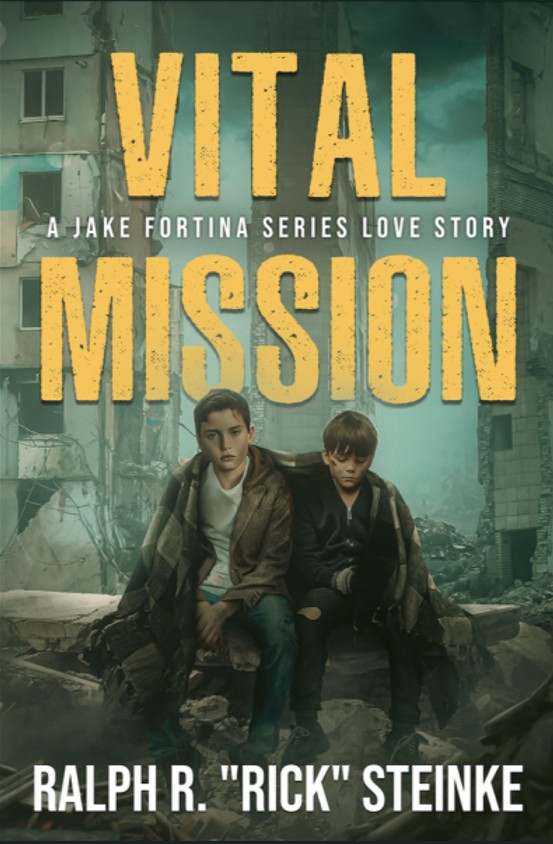|
Listen to or download this article:
|
“The child remains with us.” Trauma, especially that suffered as a child or adolescent, does not fade easily. In his frank and unguarded memoir, Little Boy I Know Your Name, Mitchell Raff shows the generational impact of the Holocaust on his parents and guardians, and how their trauma continued through him.
Mitchell’s childhood fractured between the grip of a deeply abusive mother and his extended family’s struggle to save him.
Four years after she’d abandoned him as a baby, Mitchell’s mother Giza returned to claim him. Though his uncle Issa and aunt Sally didn’t want him to go with her, Mitchell was too small a child to resist the idea of having a Mom. With his father Moshe too deeply traumatized by surviving the Dachau concentration camp to raise a child, Mitchell packed his little suitcase and walked into a new childhood that would leave terrible wounds on his mind.
Giza had spent WWII hidden in the barn of a Christian family, abused, terrified, hungry, and horribly alone when her own mother died. While none of Mitchell’s family spoke openly about their experiences under Nazi rule, Issa and Sally sought to protect him from such trauma. Giza, however, repaid the cruelty she suffered by inflicting the same onto her son. She beat Mitchell mercilessly. Often, he would have no idea what he’d even done. Mitchell became eternally vigilant, while subsisting on little food and less affection.
For years, Mitchell could rely on only his little sister Regina and the support of Issa and Sally—although they had to remain distant or risk Giza’s fury.
When Issa began proceedings to gain legal custody of Mitchell, Giza kidnapped Mitchell and took him and his sister Regina to Israel.
Giza had become too sick with hepatitis to raise either of them, so Mitchell and Regina—who soon began going by her Hebrew name Malka—were left in the hands of the foster care system and eventually separated from one another.
Even here, Mitchell had family who loved him. His aunt Ruska and uncles Yosef and Shraga worked with Issa to continue the arduous work of bringing Mitchell home. Eventually, they succeeded, but this was not without its own losses. Malka was Mitchell’s half-sister, so his extended family had no legal claim for custody. She had to stay behind. Yosef suffered fatal heart failure after exacerbating an earlier condition in a fight over transport documents.
All of these traumas followed Mitchell into adulthood, leaving him a “well-dressed poser” who fled depression and guilt into addiction even as he built a seemingly stable life.
Though he maintained a compartmentalized life for some years, Mitchell’s harmful coping strategies would end up costing him his relationship with his wife Betty and his son Joseph. He could present himself as the man he wanted to be, but beneath the surface couldn’t truly be so.
Little Boy I Know Your Name doesn’t paint a clean picture of recovery from trauma but it shows that, even after decades, healing is possible.
Over time, Mitchell recognized the patterns of harm that had ravaged his sense of security and self. And despite even greater loss than he had yet experienced, he began to face the trauma handed down to him.
Raff maintains impressive and vulnerable honesty throughout Little Boy I Know Your Name.
He empathizes with the scars of his family while being open about his own feelings towards them—even those feelings which might seem unfair or ignoble. This story approaches generational trauma without valorizing or demonizing those who bear it. Because of this honesty, Little Boy I Know Your Name reveals myriad ways people can respond to trauma, how they try to survive it and how it can transform as it is passed down to the next generation.
Raff hopes this book will encourage others to work through the trauma they carry even when it feels insurmountable. His bold confrontation of the ugly reality of trauma—in himself as much as his family—will speak to readers with an impact that couldn’t come from a more sanitized story.
A thoughtful recounting of family dysfunction, the cultural weight of trauma, and the daunting but necessary work towards breaking such a cycle, Little Boy I Know Your Name does justice to the joint pain and love in a wounded family.











Leave A Comment